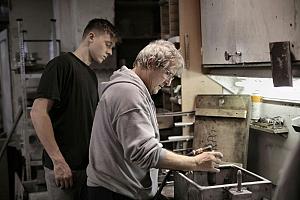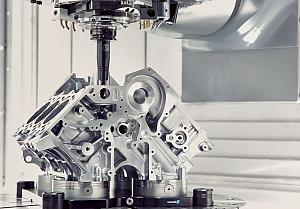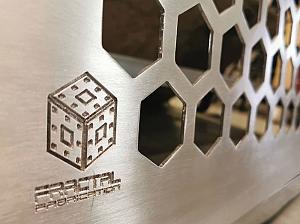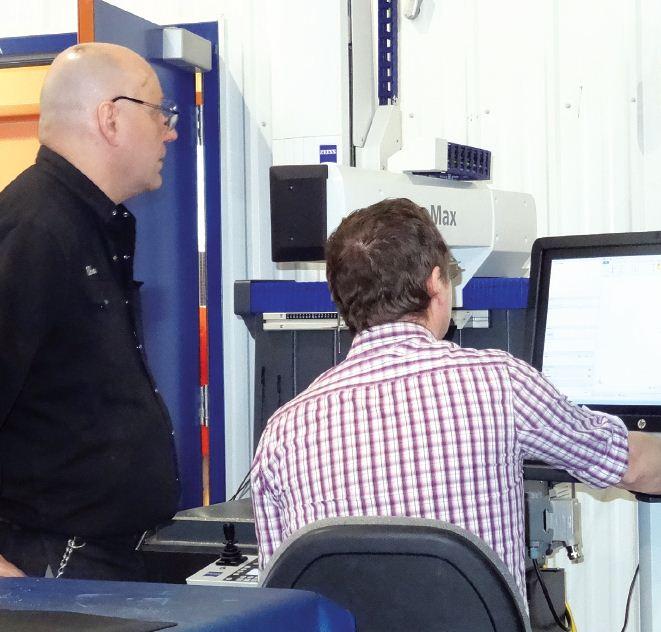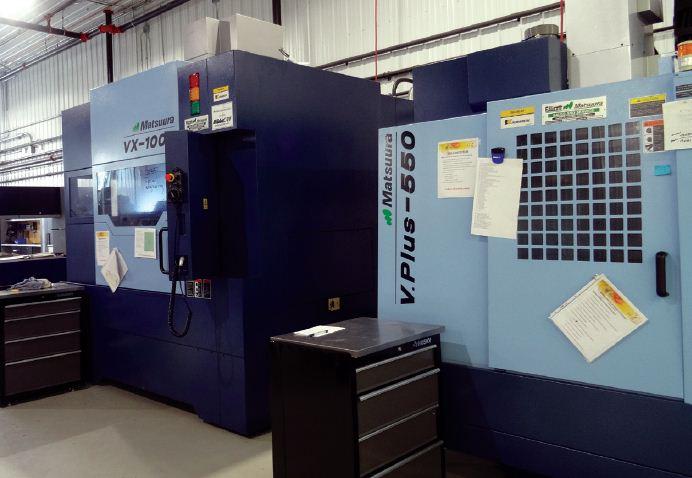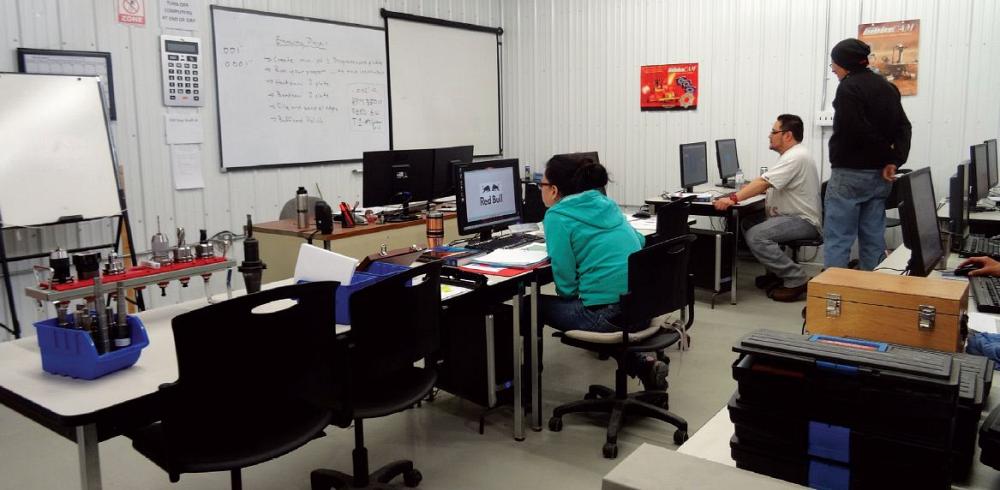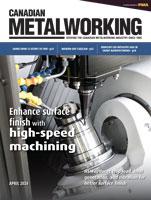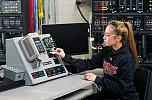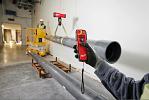Associate Editor
- FMA
- The Fabricator
- FABTECH
- Canadian Metalworking
Aligning with industry to fill the skills gap
Neeginan Institute of Applied Technologies, Winnipeg, MB
- By Lindsay Luminoso
- October 6, 2015
- Article
- Metalworking
Tucked in the former CP Railway building in Winnipeg, the Centre for Aboriginal Human Resource Development (CAHRD) strives to assist Aboriginal people with education services and help them gain and maintain employment through a variety of programs. One of which is CAHRD’s Neeginan Institute of Applied Technologies.
Located in an adjacent building, Neeginan offers full-time post-secondary programs as well as access to the latest machine tools and supplies to help students gain skillful employment in Winnipeg’s major industries, including aerospace, agricultural technology, and manufacturing.
One of the most prominent comments in industry right now is the lack of skilled workers. Neeginan is working directly with industry in order to fill these needs.
“Our training model is very flexible, we try to ensure that we can connect directly to industry needs which are often changing,” says Bill Bumstead, program development for Neeginan Institute of Applied Technologies. “We have programs that are no longer offered, we offer brand new programs, we put programs on hold or bring existing ones back. We offer a very flexible type of training model which is designed to meet our mandate which is to train and place people into employment. And how do we best do that, we make sure we are totally in tune with industries through partnerships.”
The newest program, the CNC machine operator program, came out of this model. General machining programs are apprenticeships, which is a totally separate entity from what they are doing at Neeginan, explains Bumstead. “To be a CNC operator you don’t need to be a machinist, [operators] need to be trained specific to what industry needs with running the CNC machines. And it represents a transition; we are seeing more and more CNC operators and fewer machinists. You still need machinists but not in as large of a demand as in the past,” he says.
In order to start the CNC machine operator program, Neeginan needed to ensure they were using the latest technology and equipment. They purchased five new machines from Elliott Matsuura Canada.
“We have three brand new machines (mills),” says Drew Tapley, instructor for the Computer Numerical Control (CNC) Machine Operator program. “The [Matsuura vx-1000] has a fourth axis capability. They are all high-speed, real machines like the stuff that you’d see in shops. They include inner spindle coolant, with sophisticated controllers.”
Tapley explains that the decision to buy all different machines was strategic. They wanted students to get a real-life experience.
In most cases, on the shop floor, there would be a wide variety of brands and machine types. It’s great to learn on different machines with different processes and controls. “They all use FANUC controllers but having the students move from machine to machine, they get that operator real-life, tactile, and critical thinking experience for this job.”
For the program, two lathes were also purchased: the typical two-axis YCM TC-16B and a five-axis live tooling Nakamura Tome SC200. “[The Nakamura Tome] is a pretty high-end machine. So again, just above and beyond what you would see out there for regular training,” says Tapley.
The program is not only CNC specific, but also offers Coordinate Measuring Machine (CMM) training. Neeginan recently purchased the Zeiss DuraMax. The program also has a Parlec Parsetter TMM System for tool presetting, inspection, and data management.
The program itself is fairly new, with the first eight students enrolled in February 2015. The program is six months long and has a practicum component, coordinated with industry professionals.
“We added our own items like the CAD/CAM, precision measuring, and blueprint reading,” says Tapley.
“All the essentials are included, we basically created a custom course based on what we were asked and told from industry and feedback we received from them...Industry seemed to really like it. We heard, ‘Finally something we can use here.’ A lot of the shops are not machine shops, they are CNC shops and employers want CNC operators.”
It was important, when developing the program, for Neeginan to reach out and connect with industry. Bumstead explains that Winnipeg has a pretty broad manufacturing base. There are large companies like Monarch, Cormer Aerospace, and Magellan, which have lots of CNC machines. However, he notes that Winnipeg also has a lot of SMEs, single ownership, two-person machine shops, which are slowly moving towards CNCs. For the shops that cannot afford to train internally, the hope is that young people coming out of the program can fill this void.
“There is a bit of an aerospace slant to the CNC program,” explains Bumstead. “Aerospace does use CNC, Standard Aero does, Cormer does—heavy CNC there because they do parts for defence vehicles, and there is Magellan, they do CNC. And then it’s also geared to the manufacturing sector. Those are the two main sectors in Winnipeg.”
Connecting with industry is the key to success for Neeginan, as it has constantly reached out to meet the needs of the greater Winnipeg area. “Now, industry is coming to us,” says Heather McCormick, the director of education at Neeginan.
This collaborative program ensures that the programs meet the needs of market demands and students are competent to fill the skills gap.
About the Author

Lindsay Luminoso
1154 Warden Avenue
Toronto, M1R 0A1 Canada
Lindsay Luminoso, associate editor, contributes to both Canadian Metalworking and Canadian Fabricating & Welding. She worked as an associate editor/web editor, at Canadian Metalworking from 2014-2016 and was most recently an associate editor at Design Engineering.
Luminoso has a bachelor of arts from Carleton University, a bachelor of education from Ottawa University, and a graduate certificate in book, magazine, and digital publishing from Centennial College.
subscribe now


Keep up to date with the latest news, events, and technology for all things metal from our pair of monthly magazines written specifically for Canadian manufacturers!
Start Your Free Subscription- Industry Events
MME Winnipeg
- April 30, 2024
- Winnipeg, ON Canada
CTMA Economic Uncertainty: Helping You Navigate Windsor Seminar
- April 30, 2024
- Windsor, ON Canada
CTMA Economic Uncertainty: Helping You Navigate Kitchener Seminar
- May 2, 2024
- Kitchener, ON Canada
Automate 2024
- May 6 - 9, 2024
- Chicago, IL
ANCA Open House
- May 7 - 8, 2024
- Wixom, MI




